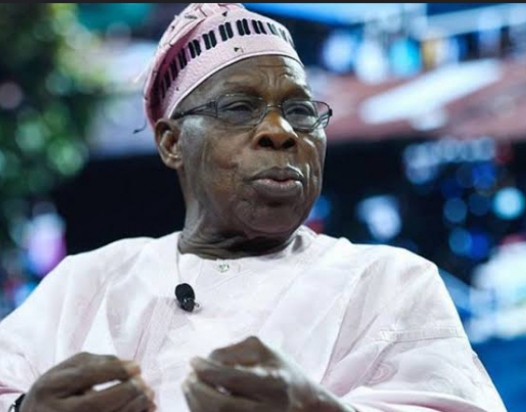“We Are Sitting on a Gunpowder Keg!” – Obasanjo Drops Bombshell, Warns Nigeria Is Ticking Toward Disaster
Former President Olusegun Obasanjo has raised the alarm over Nigeria’s deepening socio-economic crisis, warning that the country is teetering on the brink of collapse if urgent action is not taken. Speaking with passion and urgency, Obasanjo declared that Nigeria is “sitting on a keg of gunpowder,” citing poverty, leadership failure, and the lack of access to education as critical threats to the nation’s future.
The statesman made this startling revelation during a public engagement, where he stressed the critical role of leadership and good governance in reversing the country’s downward spiral.
“In all works of life, we must have leaders whose characters display ‘communality,” Obasanjo asserted.
“Leadership is the greatest ingredient for ending poverty. There’s no human endeavour that does not thrive on leadership.”
Calling for a radical shift in governance and national priorities, the former president pointed to education as a non-negotiable foundation for progress: “To get it right, we must ensure no child is uneducated.”
He continued with a pointed critique of Nigeria’s failure to tackle hunger and deprivation: “Nigeria can eliminate hunger and poverty with integrity, discipline, and good governance. We can do it. If China can lift 700 million people out of poverty, why not Nigeria?”
The former leader was unequivocal in his warning: “Nigeria should have no business with abject poverty. If we don’t take responsibility, we all sit on a gunpowder keg.”
Expanding the scope of his concerns beyond Nigeria, Obasanjo also issued a continental challenge: “Until we banish poverty in Africa, international communities will not recognize us as a serious continent.”
Obasanjo’s comments come at a time of increasing economic hardship, soaring inflation, and rising insecurity across the nation. His remarks are a wake-up call not just to political leaders but to every Nigerian, urging collective action before the looming crisis explodes.
This is not the first time the elder statesman has issued dire warnings about the country’s trajectory, but the starkness of his latest statement has left no room for ambiguity: Nigeria is in urgent need of a leadership and policy revolution—or it risks paying the ultimate price.

